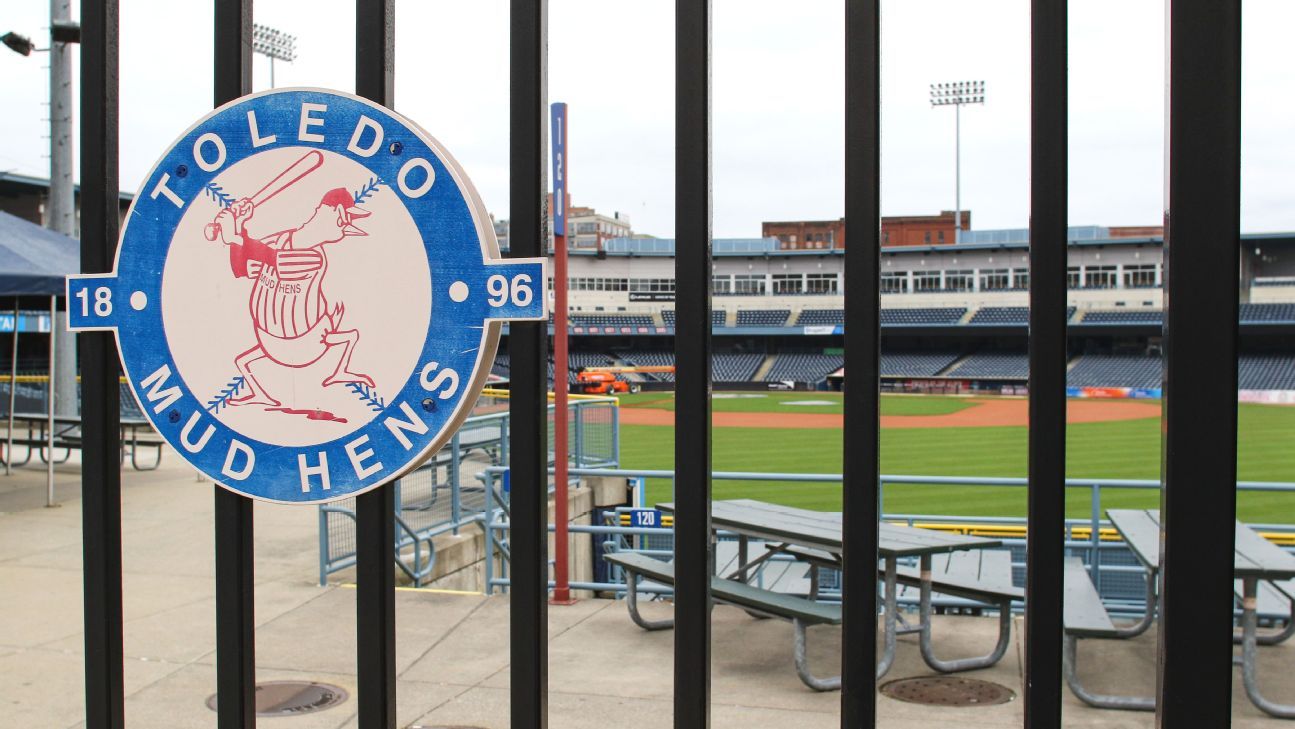News came out Thursday that hundreds of minor league baseball players were cut and hundreds more are expected to be released in the coming days. While many of these moves typically would have come at the end of spring training in March had baseball not shut down because of the coronavirus pandemic, the numbers appear to be significantly higher than usual, and all of them coming at once was jarring.
We asked ESPN baseball reporters Jesse Rogers and Bradford Doolittle to try to make sense of it all, asking what this means for the players in the short and long term, and what it says about the future of the minor leagues in general.
Is there any chance there will be minor league baseball this season?
Jesse Rogers: No, but there are a few diehards still holding out hope. Teams are beginning to release dates for games so they can use their stadiums in other ways. Some will host youth travel tournaments or be used as drive-in theaters. Minor league teams will simply try to squeeze a few dollars out of their facilities in a lost season.
Bradford Doolittle: Not a chance, unfortunately. Teams are trying to figure out different ways to generate revenue using their facilities, like hosting collegiate wood-bat leagues, and have cut back on staff. The protocol seems to be to wait for MLB and the MLB Players Association to declare their intentions before the plug is officially yanked. Lower-level teams are just trying to figure out how they will continue to exist, or given the contentious negotiations underway for a new Professional Baseball Agreement, if they will even have the option of continuing to exist.
What do the prospects do if there’s no 2020 season?
Rogers: Spring facilities will be used for some of them, while others might be part of that extra group of players who are around the big league team — but not on the initial roster — in case they’re needed due to injury. It simply won’t be a season like they’ve ever had before. The top prospects will be handled with kid gloves, but many lower-tier players will be let go if they haven’t been already.
Doolittle: Depending on how far things open up on the pandemic front, top prospects could get some work in some form of the Arizona Fall League. They also could get in work at MLB spring training facilities. Some will be needed for expanded MLB rosters and the proposed taxi squad. Whatever happens, it’s a lost year for players in the age range during which they are most apt to improve. Lesser prospects and non-prospects, as we saw Thursday, are being set adrift and will wait to see what the professional baseball landscape looks like a few months from now.
Minor league players literally have had no voice in any of these talks and some teams have done a better job of communicating than others. Beside the $400 per week stipend that teams have been paying — and most will continue to pay beyond the end of the month, with only the Oakland Athletics ending that policy at the moment — there is also the question of minor league service time. Will players who have been working toward Rule 5 eligibility be given some kind of credit for staying ready this season, even if there are no games? It might be low on the list of talking points between MLB and the MLBPA, but it sure matters to those whose futures are affected by this question. And right now, it’s unclear whether it has even come up.
This looks really dramatic, but if a lot of these guys would have been cut in March anyway, is this really a big deal or does the timing make it seem worse than it is?
Rogers: Yeah, it definitely looks worse now but, who knows, maybe guys cut in March would have been able to find jobs on other minor league teams. That can’t happen now. It really is as dramatic as it sounds. And the thought of some careers ending in this fashion is hard to fathom. Players don’t always get to go out on their own terms, but this takes things to another level.
Doolittle: The scope of cuts seems to be more than the typical levels of moves that take place between the end of spring training and the end of May, according to the initial reporting by Baseball America, but BA is also being guarded with its language in that report. If, as Jeff Passan reported for ESPN, the hundreds who were released Thursday are only the first wave of more major rounds of cuts, then we’re well beyond the bounds of normal end-of-spring releases. Also, let’s remember, with the upcoming MLB draft cut back to five rounds, if we were going to have a full group of minor league teams operating later this summer, those lower-level rosters wouldn’t be filled out by new draftees. However you slice it, the picture is ugly for minor league teams and players.
Did the minor leagues just shrink for good? There had been 160 affiliated teams. How many will there be in 2021?
Doolittle: The negotiations between MLB and minor league baseball have more or less been kneecapped by the pandemic. The political momentum that MiLB helped create with its public airing of grievances is kaput — politicians have bigger fish to fry right now. The solidarity message preached by the MiLB league office now rings hollow to some owners hoping not only to withstand a season of zero revenue, but to stand up to the reality that MLB could simply walk away and form a new system. Minor league baseball — which collectively ended last season as a wholly vibrant operation, with nothing but clear skies ahead — has had its guts ripped from it over the past six months. We’ll be sifting through the fallout for years. But to answer the question: MLB wants an affiliated system with 120 teams, so that’s what’s likely to happen.


